第53章
Finally, if the suggestion, that men and women will cease to be attractive to one another if women enter modern fields of labour, be based on the fact that her doing so may increase her intelligence and enlarge her intellectual horizon, it must be replied that the whole trend of human history absolutely negates the supposition.There is absolutely no ground for the assumption that increased intelligence and intellectual power diminishes sexual emotion in the human creature of either sex.The ignorant savage, whether in ancient or modern societies, who violates and then clubs a female into submission, may be dominated, and is, by sex emotions of a certain class; but not less dominated have been the most cultured, powerful, and highly differentiated male intelligences that the race has produced.A Mill, a Shelley, a Goethe, a Schiller, a Pericles, have not been more noted for vast intellectual powers, than for the depth and intensity of their sexual emotions.And, if possible, with the human female, the relation between intensity of sexual emotion and high intellectual gifts has been yet closer.The life of a Sophia Kovalevsky, a George Eliot, an Elizabeth Browning have not been more marked by a rare development of the intellect than by deep passionate sexual emotions.Nor throughout the history of the race has high intelligence and intellectual power ever tended to make either male or female unattractive to those of the opposite sex.
The merely brilliantly attired and unintelligent woman, probably never awakened the same intensity of profound sex emotion even among the men of her own type, which followed a George Sand; who attracted to herself with deathless force some of the most noted men of her generation, even when, nearing middle age, stout, and attired in rusty and inartistic black, she was to be found rolling her cigarettes in a dingy office, scorning all the external adornments with which less attractive females seek to supply a hidden deficiency.Probably no more hopeless mistake could be made by an ascetic seeking to extirpate sex emotion and the attraction of the sexes for one another, than were he to imagine that in increasing virility, intelligence, and knowledge this end could be attained.He might thereby differentiate and greatly concentrate the emotions, but they would be intensified; as a widely spread, shallow, sluggish stream would not be annihilated but increased in force and activity by being turned into a sharply defined, clear-cut course.
And if, further, we turn to those secondary manifestations of sexual emotion, which express themselves in the relations of human progenitors to their offspring, we shall find, if possible more markedly, that increase of intelligence and virility does not diminish but increases the strength of the affections.As the primitive, ignorant male, often willingly selling his offspring or exposing his female infants to death, often develops, with the increase of culture and intelligence, into the extremely devoted and self-sacrificing male progenitor of civilised societies; so, yet even more markedly, does the female relation with her offspring, become intensified and permanent, as culture and intelligence and virility increase.The Bushwoman, like the lowest female barbarians in our own societies, will often readily dispose of her infant son for a bottle of spirits or a little coin; and even among somewhat more mentally developed females, strong as is the affection of the average female for her new born offspring, the closeness of the relation between mother and child tends rapidly to shrink as time passes, so that by the time of adolescence is reached the relation between mother and son becomes little more than a remembrance of a close inter-union which once existed.It is, perhaps, seldom, till the very highest point of intellectual growth and mental virility has been reached by the human female, that her relation with her male offspring becomes a permanent and active and dominant factor in the lives of both.The concentrated and all-absorbing affection and fellowship which existed between the greatest female intellect France has produced and the son she bore, dominating both lives to the end, the fellowship of the English historian with his mother, who remained his chosen companion and the sharer of all his labours through life, the relation of St.Augustine to his mother, and those of countless others, are relations almost inconceivable where the woman is not of commanding and active intelligence, and where the passion of mere physical instinct is completed by the passion of the intellect and spirit.
There appears, then, from the study of human nature in the past, no ground for supposing that if, as a result of woman's adopting new forms of labour, she should become more free, more wealthy, or more actively intelligent, that this could in any way diminish her need of the physical and mental comradeship of man, nor his need of her; nor that it would affect their secondary sexual relations as progenitors, save by deepening, concentrating, and extending throughout life the parental emotions.The conception that man's and woman's need of each other could be touched, or the emotions binding the sexes obliterated, by any mere change in the form of labour performed by the woman of the race, is as grotesque in its impossibility, as the suggestion that the placing of a shell on the seashore this way or that might destroy the action of the earth's great tidal wave.